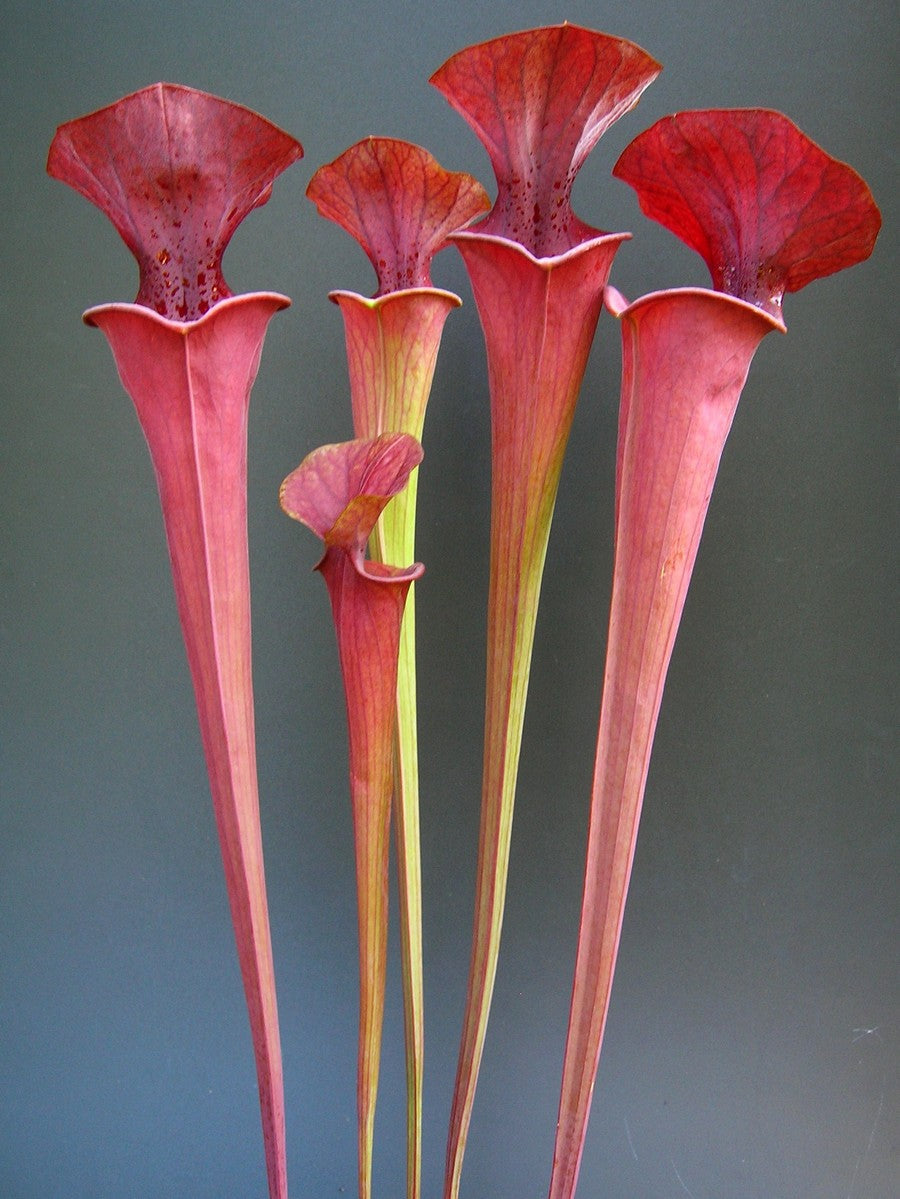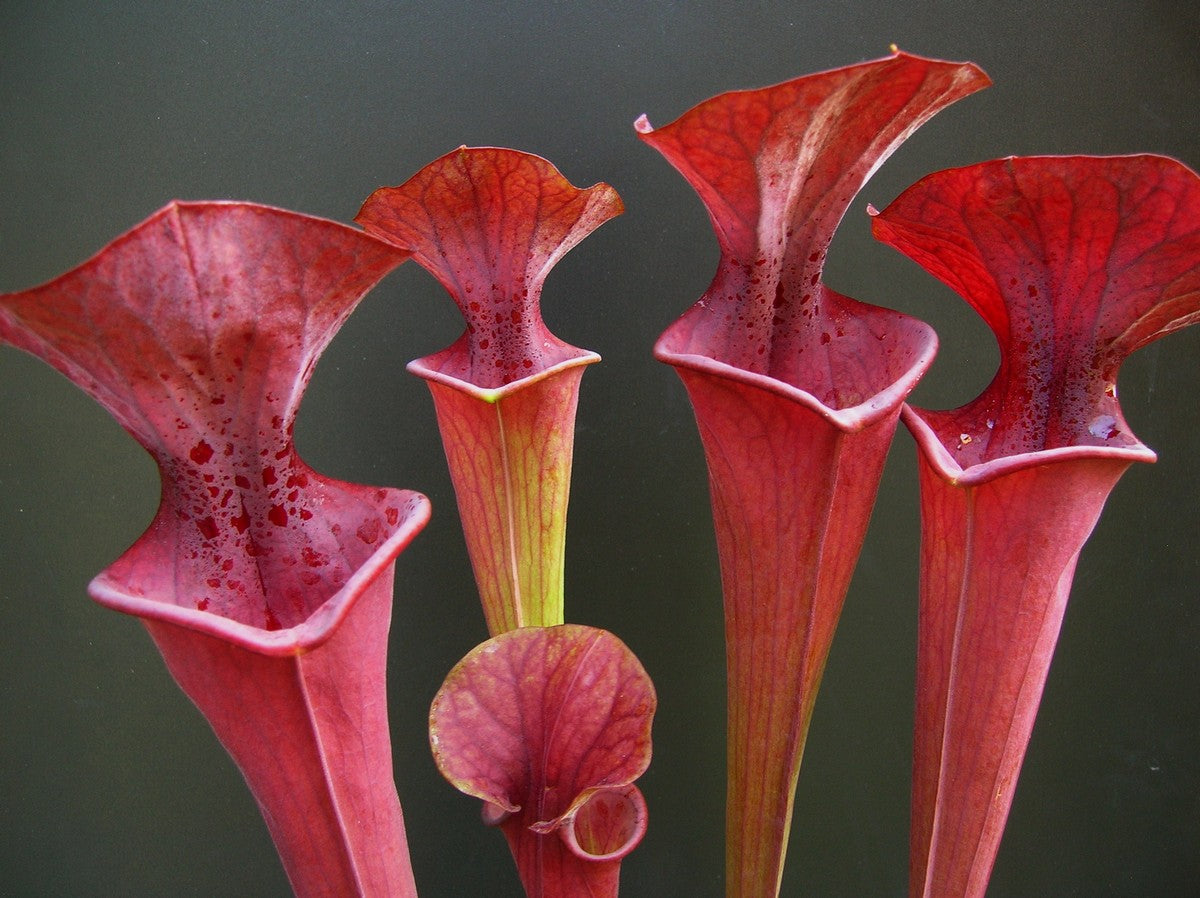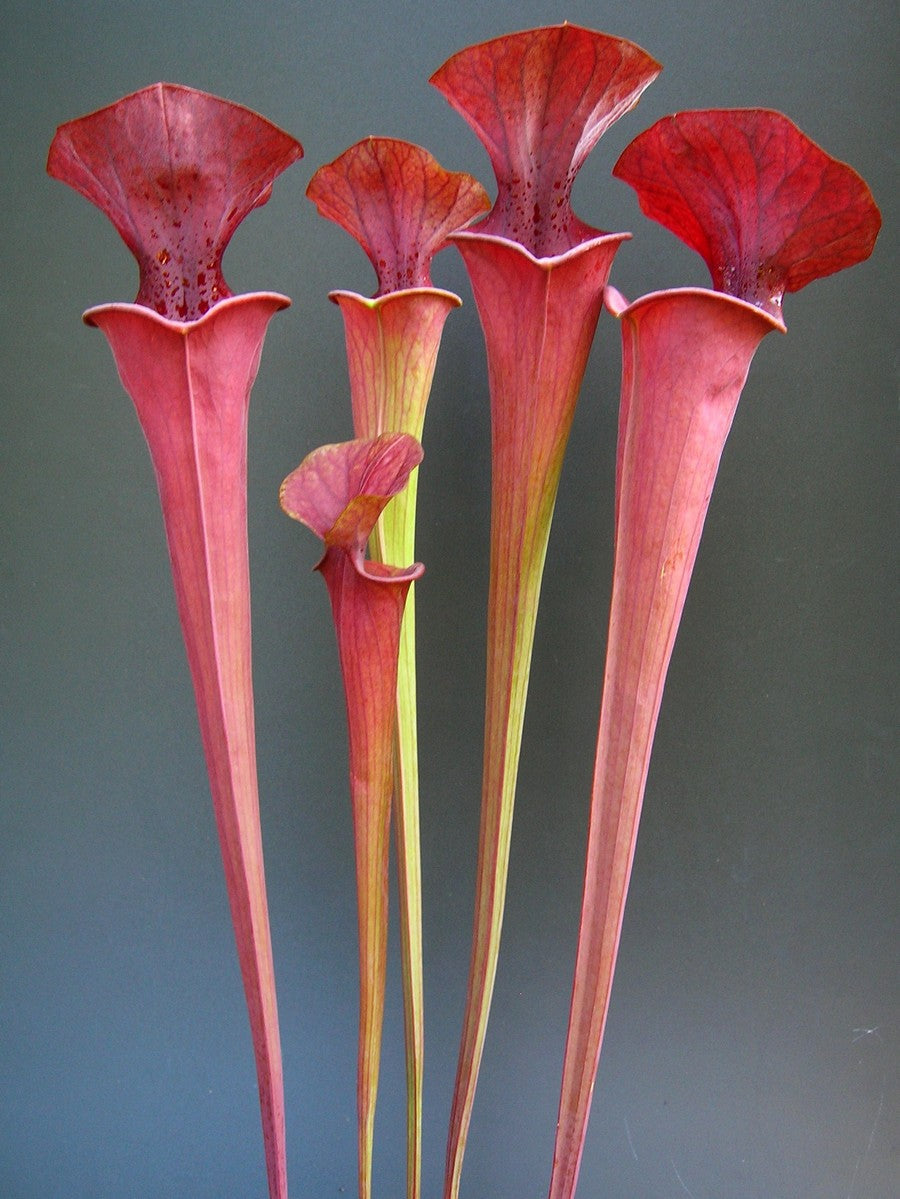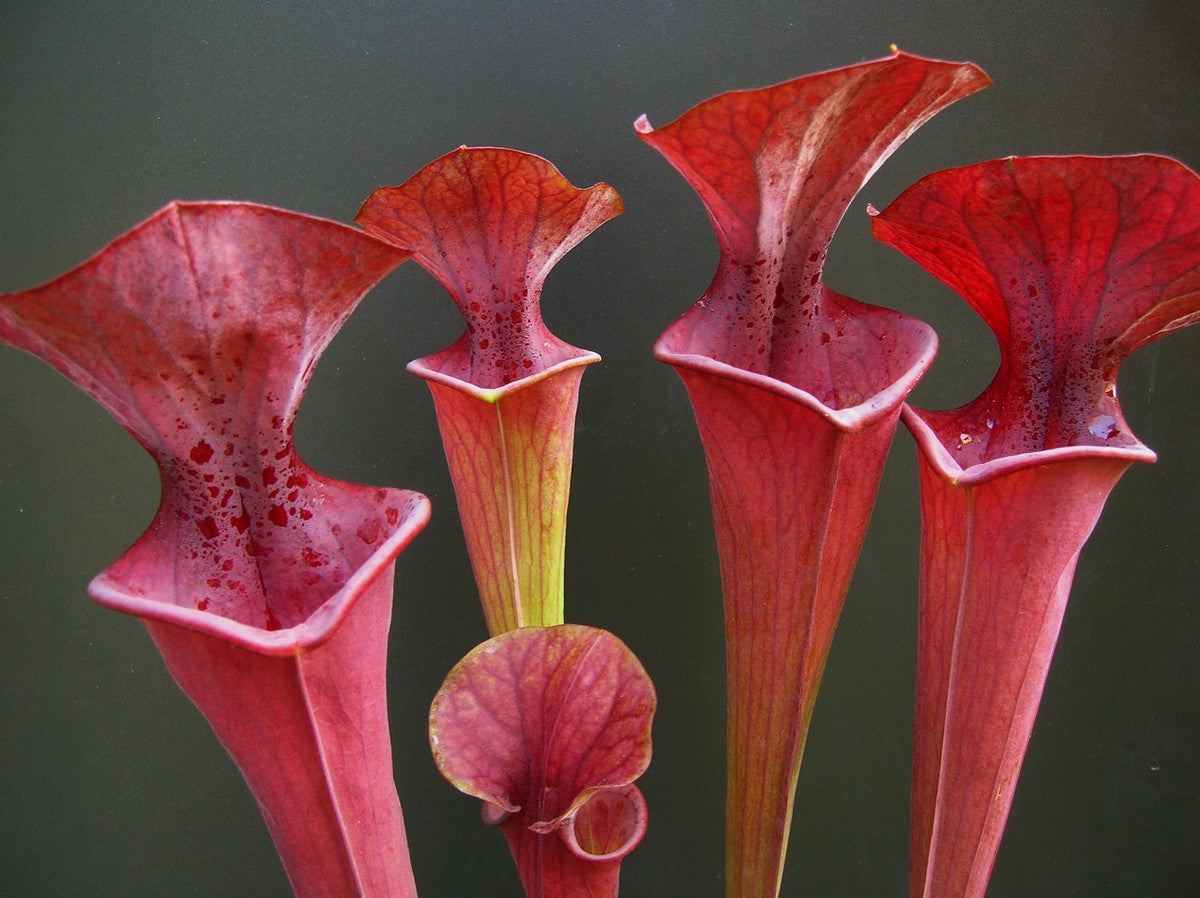Giardino Carnivoro
Sarracenia flava var. atropurpurea FL24 RVO
Sarracenia flava var. atropurpurea FL24 RVO
Sarracenia flava var. atropurpurea is a carnivorous plant that grows in the marshy areas of the coastal plain of the southeastern United States, North Carolina and from Alabama to Virginia.
It is certainly one of the largest of the Sarracenia genus, reaching heights between 60 and 80 cm.
The traps have a very solid structure and start out slim and then open into a very wide mouth.
The color of the leaves is very bright red, including the cap. When repotted, it struggles to color in the first year of growth.
The flower has very large yellow petals.
The most beautiful traps are produced in spring while during the summer it mainly produces phyllodia which are flat and non-carnivorous leaves with the sole purpose of increasing photosynthesis especially in winter when the traps full of insects will have fallen.
Growing Tips
Growing Tips
The sarracenia catches many flies, wasps, bedbugs and other large insects
Soil: Blonde acid sphagnum peat with perlite
IN SUMMER: Keep the plant exposed to the sun for many hours a day, which is essential for it to grow healthy and colourful. It does not suffer from the summer heat if the water level in the saucer is kept high.
It should never be fertilized.
IN WINTER Keep the plant outside in a sunny and wind-protected position. Just avoid prolonged frosts. You can cut dry and damaged leaves at the base. In spring it will have beautiful flowering and lots of new leaves.
To have even higher traps you can cut the flower as soon as it appears at 5 cm in height. The peat must be completely changed every two or three years.
Watering
Watering
The best water is rain or distilled or reverse osmosis.
It must be free of limestone residues and very tender and acidic.
Sarracenia loves a high water level in the saucer.
The traps should not be filled with water.
In summer the ideal level is constant up to half the vase.
In winter, a constant cm or two will be enough.
It is not necessary to vaporize the plant but in the height of summer it can be refreshed with evening rain, always with low-calcareous water.




